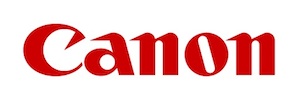Interviewer: What would say is your biggest competitor these days as your business is morphed?
Charlie Corr: Yeah, it’s an interesting question. I would say the existing way people do business is our biggest competitor. So that often means the local person that you’ve done business with in the traditional way and it often means the FM or the implant that they’ve always done business with. And in some cases, it’s the retail players, you know, the Fed Ex office or the Staples or the Office Max, depending on the customer segment. Although that’s a little less true for Fortune 500 types, although they spend a lot of money with those folks. But they’re clearly people we run up against. They have some tools as well and they sort of go the opposite where we’re… we’re not… we have bricks and mortar, but we only have three, right.
Interviewer: Yeah, yeah.
Charlie Corr: They have lots, right. And so it’s a different, you know, it’s a different perspective. But I would say it’s the existing way that people do business, right. And that means local provider and that means the implant or the FM, is probably the biggest…
Interviewer: Now, traditional, Mimeo really had had a position in training materials
Charlie Corr: Yeah.
Interviewer: And like expanded those markets too.
Charlie Corr: Yeah. We’ve had to, right. We were perhaps… we were seeing very good growth in financial services and particularly in training and learning and then the economy changed. And particularly for financial services. So one of the things we had to do was we sort of had to… you had to sort of move the ship, right? You had to say, “Look, we’ve got to find new opportunities.” And those opportunities are around color, those opportunities are around distributed sales organizations, franchise organizations and people who have in either through their channel partners or through their own franchise operations or just the way they do business are very distributed. So we moved very quickly there and that’s all about color as well. So, but we had to make that change. Right? And still the training part is an important part, it’s a good base of our business, but we had to make that change into these new applications and these new verticals and horizontals or we were going to be in trouble.
Interviewer: And then the final thing I was interested in was, what are you doing with mobile?
Charlie Corr: Yeah, so we are working on a number of things for the mobile, both with ourselves, sort of, you know, you could do a marketplace, which is a sort of a web to print storefront thing and you could go on and you could order something from mobile. And we’re also trying to build apps with other folks, like Script and with Google, or Google Docs, and interfaces for those. And one of the things that we’re really seeing is that we really think that it’s in the cloud and print becomes a utility. Right? You don’t know or care where it was printed, right?
Interviewer: Yeah, yeah. Or what it was printed on…
Charlie Corr: Or what it was printed on, honestly. Right? You just know that I want this, here’s where I want it. And you know, you might give them a couple of choices; you might give them none, right? It comes this way all the time. Right? And that we think is really important. And then you become a utility, you’re in the cloud and end users are not making… so it’s interesting because if you think about it, people are still making that decision on how to print it, right and how to distribute it. And I’m not sure that they need to, right? It’s like there’s the app, and here’s what I want, right, and just give me that. Right? I don’t care… I don’t care about the paper really, I don’t… you know, it’s like I don’t need to know all of that. And we think that’s a lot of the opportunity moving forward.
Interviewer: Well that’s great. Well thank you.
Charlie Corr: Great. Good, thanks.

 Official camera partner of WhatTheyThink and the drupa daily.
Official camera partner of WhatTheyThink and the drupa daily. 












